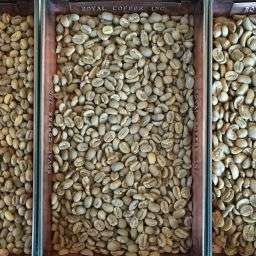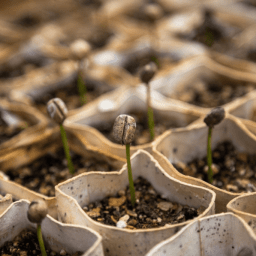
For coffee lovers, the quest for the perfect espresso is a journey of flavor, aroma, and precision. The Philips 3200 espresso machine emerges as a beacon of convenience and quality, promising a barista-level experience from the comfort of your home. This sleek machine, known for its ease of use and versatile coffee-making options, is only as good as the coffee beans you choose to pair it with. The right beans can elevate your coffee experience, bringing out the nuanced flavors and rich aromas that coffee aficionados cherish.
Selecting the best coffee beans for the Philips 3200 is not just about taste preference; it’s about understanding the machine’s capabilities and how different beans interact with its brewing technology. This blog post delves into the world of coffee beans, offering guidance on choosing beans that complement the Philips 3200, ensuring every cup you brew is nothing short of extraordinary.
As we explore the intricacies of coffee beans and their journey from the bag to your cup, remember that the ultimate goal is to enhance your daily coffee ritual. Whether you’re a seasoned espresso enthusiast or new to the world of premium home-brewed coffee, this guide is your companion in finding the perfect beans for your Philips 3200 espresso machine.
Understanding Your Philips 3200
At the heart of your quest for the perfect espresso is your Philips 3200 espresso machine, a marvel of modern engineering designed to simplify the brewing process without compromising on quality. Understanding the features and capabilities of your Philips 3200 is the first step towards making informed decisions about the coffee beans you choose.
The Philips 3200 is equipped with a durable ceramic grinder, customizable settings for coffee strength, temperature, and volume, and the ability to make a variety of coffee beverages with just the touch of a button. The machine’s versatility is matched by its precision, allowing for adjustments that cater to the specific characteristics of your chosen coffee beans. The grinder settings, in particular, are crucial, as the grind size can significantly affect the extraction process and, consequently, the taste of your espresso.
The type of coffee bean you select will interact differently with the Philips 3200’s brewing process. For instance, oily, dark-roasted beans may require a coarser grind to prevent clogging and ensure optimal extraction, while lighter roasts might benefit from a finer grind to fully express their subtle flavors. Understanding these nuances is key to unlocking the full potential of your Philips 3200 and achieving a cup of coffee that suits your taste perfectly.
Types of Coffee Beans
The world of coffee beans is vast and varied, with each type offering unique flavors and aromas. The two primary species of coffee beans are Arabica and Robusta, each with its own distinct characteristics.
- Arabica Beans: Known for their smooth, complex flavor profiles, Arabica beans are the most popular coffee beans in the world. They tend to have a higher acidity and a more nuanced range of flavors, often with fruity or floral notes, making them ideal for espresso enthusiasts who appreciate depth and complexity in their coffee.
- Robusta Beans: Robusta beans are stronger and more robust than Arabica beans, with a higher caffeine content and a more bitter flavor. They are often used in espresso blends to add body and crema, the creamy layer on top of an espresso shot. Robusta beans are a good choice for those who prefer a bold, intense coffee.
The roast level of the coffee bean also plays a significant role in determining the flavor profile of your espresso:
- Light Roasts: Preserve the original flavors of the coffee bean, often resulting in a more acidic cup with pronounced floral or fruity notes.
- Medium Roasts: Offer a balance between acidity and body, highlighting the bean’s natural flavors while introducing some roast-induced characteristics.
- Dark Roasts: Provide a bold, full-bodied coffee with reduced acidity and pronounced bitterness, often with smoky or chocolaty notes.
Freshness is another critical factor in coffee quality. Coffee beans should be used within weeks of roasting to ensure the best flavor. Over time, beans lose their aroma and taste, resulting in a flat, less enjoyable espresso.
Best Coffee Beans for Philips 3200
Choosing the right coffee beans for your Philips 3200 can dramatically enhance your coffee experience. The criteria for selecting beans include roast type, origin, and quality. Below are five recommended coffee beans that harmonize beautifully with the Philips 3200, catering to a range of tastes and preferences.
- Single-Origin Arabica Beans (For Nuanced Flavor Profiles)
- Description: These beans come from specific regions known for their unique climate and soil conditions, contributing to a distinct flavor profile. Ideal for those who appreciate the subtle nuances of taste.
- Why It’s Best for Philips 3200: The machine’s precise settings can be adjusted to highlight the unique characteristics of each single-origin batch, from floral notes of Ethiopian beans to the fruity undertones of Colombian coffee.
- Balanced Blend (For a Well-Rounded Espresso)
- Description: A carefully curated blend of Arabica and Robusta beans, designed to offer a balanced espresso with good body, crema, and a harmonious flavor profile.
- Why It’s Best for Philips 3200: The blend works well with the machine’s default settings, providing a consistently enjoyable espresso without the need for extensive adjustments.
- Dark Roast (For Strong, Robust Espresso)
- Description: Beans roasted longer to achieve a dark color and oily surface, known for their bold, full-bodied flavor with hints of chocolate and caramel.
- Why It’s Best for Philips 3200: The Philips 3200’s ceramic grinder and adjustable settings are perfect for handling dark roasts, producing a strong espresso with a rich crema.
- Medium Roast (For Milder, Smoother Cup)
- Description: These beans are roasted to a medium level, offering a balance between the bean’s inherent flavors and the roast’s character, resulting in a smooth, versatile coffee.
- Why It’s Best for Philips 3200: Medium roasts are ideal for exploring the range of espresso and coffee options the Philips 3200 offers, from Americanos to lattes, without overpowering milk or water additions.
- Specialty Option (For Adventurous Palates)
- Description: Exotic beans such as Ethiopian Yirgacheffe, known for their unique flavors, like floral and citrus notes, that provide an unconventional espresso experience.
- Why It’s Best for Philips 3200: The machine’s ability to fine-tune grind size and brewing parameters means you can experiment with these specialty beans to extract their optimal flavor profile.
When experimenting with different beans, start with the recommended settings on your Philips 3200 and adjust based on taste. This process will help you discover the perfect espresso that meets your preferences.
Maximizing Coffee Quality with Philips 3200
To ensure that each cup of coffee is as delicious as possible, consider the following tips:
- Storing Coffee Beans: Keep your beans in an airtight container away from direct sunlight and extreme temperatures to preserve their freshness and flavor.
- Adjusting Settings: Experiment with the Philips 3200’s grind size, water temperature, and coffee strength settings to find the perfect match for your chosen bean type. A finer grind and higher temperature can enhance extraction for light roasts, while coarser grinds and lower temperatures may be better for dark roasts.
- Maintenance: Regularly cleaning and descaling your Philips 3200 is crucial for maintaining its performance and ensuring the best taste for your espresso. Follow the manufacturer’s instructions for cleaning and maintenance.
Conclusion
Selecting the right coffee beans for your Philips 3200 is an essential step towards achieving the perfect espresso. It’s about understanding your preferences, experimenting with different beans and settings, and enjoying the journey of discovering what works best for you. The Philips 3200’s versatility and precision make it a powerful tool in your quest for coffee perfection, but it’s the quality of the beans that truly brings your espresso to life.
We encourage you to explore different coffee beans and share your experiences. What beans have you found to work best with your Philips 3200? How have you adjusted the settings to suit your taste? Sharing your coffee journey can inspire others and help build a community of passionate espresso enthusiasts.
Remember, the perfect cup of coffee is a personal journey, one that evolves with your tastes and preferences. So, keep experimenting, and enjoy every sip along the way.









